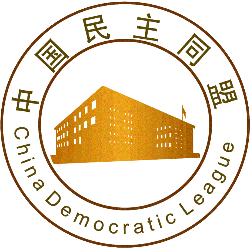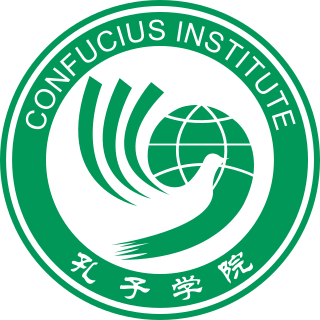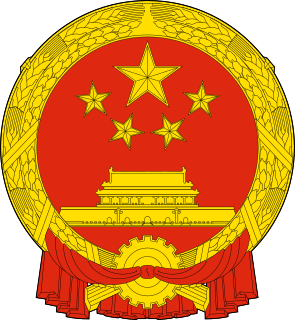 W
WThe All-China Federation of Trade Unions (ACFTU) is the national trade union center of the People's Republic of China. It is the largest trade union in the world with 302 million members in 1,713,000 primary trade union organizations. The ACFTU is divided into 31 regional federations and 10 national industrial unions. The ACFTU is the country's sole legally-mandated trade union, with which all enterprise-level trade unions must be affiliated. There has been dispute over whether ACFTU is an independent trade union or even a trade union at all. It directs a public college, the China University of Labor Relations.
 W
WThe All-China Journalists Association (ACJA), previously known as the 'Chinese Young Journalist Association', was established in Shanghai on 8 November 1937. November 8th now marks 'National Journalists Day' in China. The society was established by Chinese wartime reporter Fan Changjiang and later organized and sponsored by the Chinese Communist Party. On 15 September 1949, the All China Journalist Association became the first Chinese media association to be formally recognized by, and integrated into, the International Federation of Journalists.
 W
WThe All-China Youth Federation is a people's organization founded on May 4, 1949 that represents many youth groups in China, including the Communist Youth League of China. Former paramount leaders and General Secretaries of the Chinese Communist Party Hu Jintao and Jiang Zemin were both members.
 W
WThe China Association for Promoting Democracy is one of the eight legally recognised minor political parties in the People's Republic of China that follow the direction of the Chinese Communist Party and is a member of the Chinese People's Political Consultative Conference. It was formed on 30 December 1945, and mainly represents high-level intellectuals engaged in education and cultural publishing media. It holds seats in the National People's Congress of China.
 W
WThe China Democratic League is one of the eight legally recognised minor political parties in the People's Republic of China. The CDL was originally founded in 1941 as an umbrella coalition group of the Chinese National Socialist Party, the Chinese Youth Party and the Chinese Peasants' and Workers' Democratic Party to fight the Imperial Japanese Army while providing for a "Third Way".
 W
WThe China Institutes of Contemporary International Relations is among China's largest, oldest and most influential research institutes for international studies. Located in Beijing, the institute is affiliated with China's Ministry of State Security (MSS), and overseen by the Central Committee of the Communist Party of China.
 W
WThe China International Publishing Group (CIPG), also known as the China Foreign Languages Publishing Administration, is a Chinese Communist Party-owned foreign-language publishing organisation in China. Established in October 1949, it has developed into a global media corporation, providing up-to-date information about China to readers worldwide through books, magazines and the Internet. CIPG is fully overseen and controlled by the Chinese Communist Party.
 W
WChina Internet Information Center is a state-run web portal of the People's Republic of China and published under the auspices of the State Council Information Office and the China International Publishing Group.
 W
WThe China National Democratic Construction Association (CNDCA), sometimes translated as the China Democratic National Construction Association (CDNCA), also known by its Chinese abbreviation Minjian (民建), is one of the eight legally recognised minor political parties in the People's Republic of China that follow the direction of the Chinese Communist Party and are members of the Chinese People's Political Consultative Conference. It was founded in Chongqing in 1945 by the Vocational Education Society, a former member of the China Democratic League.
 W
WChina News Service is the second largest state-owned news agency in China, after Xinhua News Agency. China News Service was formerly run by the Overseas Chinese Affairs Office, which was absorbed into the United Front Work Department of the Chinese Communist Party (CCP) in 2018. Its operations have traditionally been directed at overseas Chinese worldwide and residents of Hong Kong, Macau and Taiwan.
 W
WThe Chinese Unification Promotion Party, also known as the Unionist Party, is a political party in Taiwan that promotes the island's reunification with mainland China. The party believes in the principle of "one country, two systems" and is against Taiwan independence, viewing the People's Republic of China as the sole legitimate Chinese state with sovereignty over Taiwan.
 W
WConfucius Institutes are public educational and cultural promotion programs funded and arranged currently by the Chinese International Education Foundation and formerly by Hanban, an organization affiliated with the Chinese government. The stated aim of the program is to promote Chinese language and culture, support local Chinese teaching internationally, and facilitate cultural exchanges. The organization has been criticized over concerns of the Chinese government's undue overseas influence and suppression of academic freedom.
 W
WThe Inner Mongolian People's Revolutionary Party was a political party in Inner Mongolia. The party was founded by a number of politically active Inner Mongolian youth including Mersé and Serengdongrub in Kalgan in October 1925 in Zhangjiakou. Mersé, who had contacts with the Mongolian People's Revolutionary Party and Comintern, became the general secretary of the party. Others present at their inaugural meeting included Altanochir, Fumintai, and Sainbayar.
 W
WThe Islamic Association of China is the official national religious organization for Muslims of all ethnic groups in China. The association is overseen by the United Front Work Department of the Communist Party of China following the State Administration for Religious Affairs' absorption into the United Front Work Department in 2018.
 W
WThe Jiusan Society is one of the eight legally recognised minor political parties in the People's Republic of China that follow the direction of the Chinese Communist Party and are members of the Chinese People's Political Consultative Conference. The party's original name was "Democracy and Science Forum" on its informal founding in 1944; the current name refers to the date of Chinese victory in the Second Sino-Japanese War.
 W
WThe (Chinese) Patriot Alliance Association, abbreviated PAA, also known as the Concentric Patriotism Alliance or the Concentric Patriotism Association of China is a pro-Communist Party of China organization that supports the unification of Taiwan and China.
 W
WThe Revolutionary Committee of the Chinese Kuomintang (RCCK) is one of the eight legally recognised minor political parties in the People's Republic of China that follow the direction of the Communist Party of China (CPC). It was founded in January 1948, during the height of the Chinese Civil War, by members of the left wing of the Kuomintang (KMT), especially those who were against Chiang Kai-shek's policies. The first Chairman of the party was General Li Jishen, a senior Nationalist military commander who had many disputes with Chiang over the years, while Soong Ching-ling was named Honorary Chairwoman. Other early leading members were Wang Kunlun, Cheng Qian, He Xiangning and Tao Zhiyue. The party claims to be the true heir of Sun Yat-sen's legacy and his Three Principles of the People. By the end of 2017, it had 131,410 members.
 W
WThe National Ethnic Affairs Commission of the People's Republic of China is a commission under the United Front Work Department responsible for relations between the Chinese government and ethnic minorities in China. Prior to 2018, the NEAC was a de jure cabinet-level executive department of the State Council of the People's Republic of China.
 W
WThe Xinjiang Production and Construction Corps, also known as XPCC or Bingtuan, is a unique state-owned economic and paramilitary organization in the Xinjiang Uyghur Autonomous Region (XUAR) of China. The XPCC has administrative authority over several medium-sized cities as well as settlements and farms in Xinjiang. It has its own administrative structure, fulfilling governmental functions such as healthcare, policing, judiciary, and education for areas under its jurisdiction. Nominally subject to the XUAR, its internal affairs, including the administration of its cities and reclaimed land, is separate from that of the Autonomous Region and under direct control of the central government. The XPCC has been described to operate as a "state within a state."